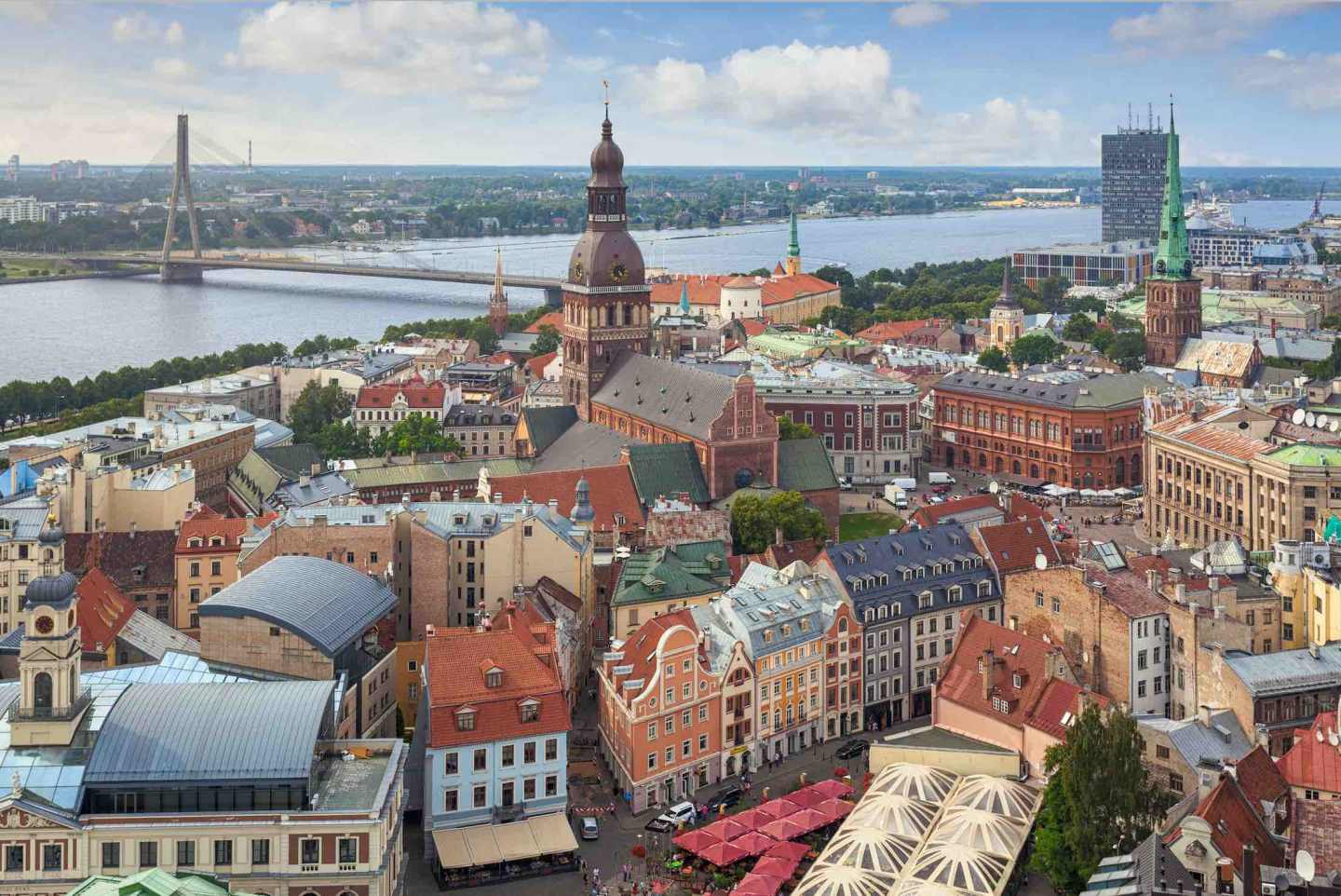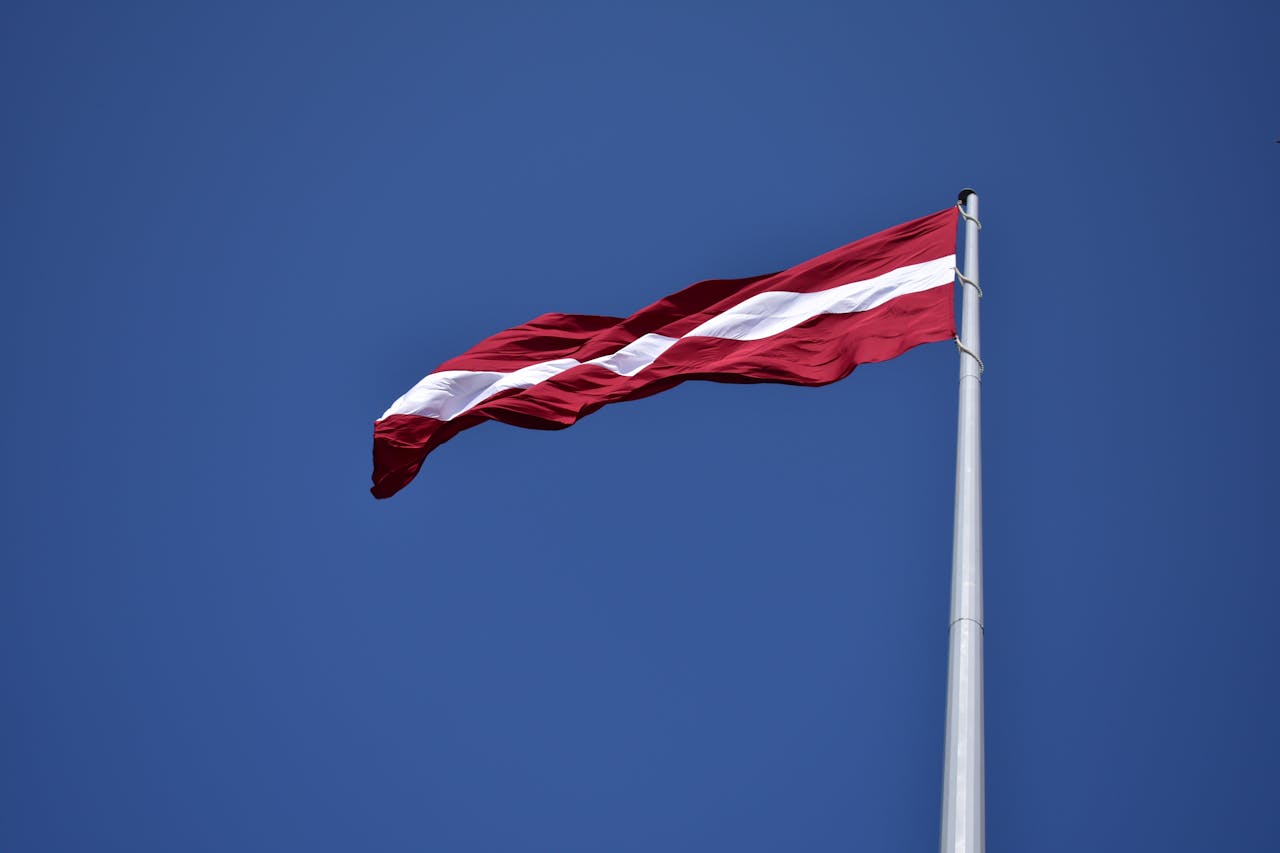拉脫維亞市場研究

在拉脫維亞充滿活力的環境中,市場研究不僅僅是一種選擇,對於尋求永續成長和競爭優勢的企業來說,它是一項策略任務。這就是為什麼拉脫維亞的市場研究可以幫助企業了解當地市場和消費者行為的細微差別。
什麼是拉脫維亞的市場研究?
拉脫維亞的市場研究研究拉脫維亞市場及其各個細分市場。此流程旨在為企業提供有關消費者偏好、市場趨勢、競爭格局和監管環境的寶貴見解。
拉脫維亞市場研究的關鍵組成部分包括:
- 消費者行為分析: 了解拉脫維亞消費者如何思考、行為和做出購買決定至關重要。市場研究有助於揭示消費者偏好、購買模式以及影響他們選擇的因素。
- 競爭對手分析: 檢視拉脫維亞的競爭格局對於確定關鍵參與者、他們的策略、優勢、劣勢和市場定位至關重要。此分析有助於企業制定有效的差異化策略。
- 市場區隔: 根據人口統計、心理、地理和行為特徵將市場劃分為不同的細分市場,有助於企業針對特定的消費群體提供量身定制的產品。
為什麼企業需要拉脫維亞的市場研究?

Latvia’s market dynamics are unique and shaped by cultural, economic, and regulatory factors. Therefore, market research helps businesses comprehend these nuances, enabling them to tailor their strategies accordingly. Additionally, through market research in Latvia, companies can uncover untapped opportunities in Latvia’s market landscape. This includes identifying emerging trends, niche segments, and gaps in the market that can be leveraged for growth.
Market research in Latvia also allows businesses to assess potential risks and challenges associated with operating in the country. Businesses can mitigate risks and make informed decisions by understanding market conditions, competitive pressures, and regulatory constraints.
何時在拉脫維亞進行市場研究
拉脫維亞的市場研究最好在企業生命週期的策略點進行,以最大限度地提高其有效性和影響力:
• 進入市場或擴張之前: Market research in Latvia is essential to assess the feasibility of a venture before entering or expanding into Latvia. This includes understanding market size, consumer preferences, competition, and regulatory requirements.
• 產品開發期間: Conducting market research in Latvia during product development allows businesses to gather feedback from Latvian consumers. This feedback helps refine product features, pricing, and positioning to better meet local market needs.
• 競爭分析: 了解市場上現有的產品和消費者的看法有助於企業有效地差異化其產品。
我們目前的市場回顧和建議

We notice that Latvia has seen a significant rise in its digital economy, with increasing internet penetration and adoption of e-commerce platforms. Latvian consumers also emphasize sustainable practices and eco-friendly products, presenting opportunities for businesses to align with these preferences. Moreover, Latvia’s tourism industry is experiencing growth, driven by its rich cultural heritage, historical landmarks, and natural attractions.
未來,持續的技術進步預計將重塑拉脫維亞的各個產業,為創新和數位轉型創造機會,拉脫維亞正在培育充滿活力的新創生態系統,促進跨領域的創業和創新。
潛在的投資回報率和建議:
- 投資機會: 提供可觀回報的關鍵產業包括科技、再生能源、醫療保健和旅遊相關服務。
- 策略夥伴: 與當地利害關係人和策略夥伴關係的合作可以促進市場進入和擴張工作。
- 以客戶為中心的方法: 強調基於本地洞察力的以客戶為中心的策略對於在拉脫維亞充滿活力的市場取得成功至關重要。
SIS International 拉脫維亞市場研究的預期結果
SIS國際拉脫維亞的綜合市場研究服務旨在為企業提供有影響力的成果和切實的利益:
可行的見解:
安全資訊系統 專注於產生可操作的見解,直接為戰略決策提供信息,使企業能夠抓住機會並有效應對挑戰。
風險緩解:
透過進行徹底的市場評估和競爭對手分析,我們幫助企業識別和減輕與拉脫維亞市場進入、擴張或產品發布相關的風險。
增強市場理解:
透過深入的消費者行為研究和市場區隔分析,我們為企業提供對拉脫維亞市場格局的細緻了解,使他們能夠根據當地喜好客製化產品。
優化資源配置:
我們的研究結果透過突顯高潛力的細分市場來促進優化資源配置,使企業能夠有效地分配預算和工作量。
策略建議:
根據我們的調查結果,我們提供適合每個客戶目標的策略建議,支持他們制定有效的市場進入策略或完善現有的業務方法。
提高投資報酬率:
透過利用我們的市場洞察和建議,企業可以根據拉脫維亞的市場需求和機會做出明智的決策,從而提高投資報酬率 (ROI)。
競爭優勢:
透過深入了解競爭對手的策略和市場定位,企業可以在拉脫維亞市場獲得競爭優勢,從而有效地脫穎而出。
長期成長:
我們的研究服務透過提供持續的市場監控和見解,支持企業適應不斷變化的市場條件,為永續的業務成長做出貢獻。
社群

拉脫維亞是北歐的內陸國家。它是波羅的海東岸的國家之一。拉脫維亞語是現存最古老的波羅的海語言之一。拉脫維亞與其他四個國家接壤,包括俄羅斯和白俄羅斯。西邊與瑞典接壤。拉脫維亞總面積約 4 萬平方英里,人口為 190 萬人。地勢平坦,海拔200公尺以下。
- 裡加及週邊地區: 首都裡加是拉脫維亞的經濟和文化中心。它吸引了多元化的企業並提供了龐大的消費者基礎。尤爾馬拉等周邊地區是旅遊業和豪華住宅開發的熱門地區。
- 拉特蓋爾: 拉特加爾位於拉脫維亞東部,以其獨特的文化和傳統而聞名。該地區為企業提供了滿足獨特消費者偏好並進入當地產業的機會。
- 維澤梅: 維澤梅的特點是茂密的森林、歷史地標和新興的旅遊基礎設施。企業可以利用維澤梅的自然美景和日益增長的旅遊興趣。
- 庫爾澤梅: 庫爾澤梅西部地區擁有沿海景點和農業景觀。這是食品和飲料企業、生態旅遊企業和再生能源項目感興趣的領域。
- 澤姆蓋爾: 澤姆蓋爾以其肥沃的農田和農業活動而聞名。食品業的企業可以從採購當地農產品和與農業社區合作中受益。
趨勢
由於世界大戰,拉脫維亞人口減少。居住在該國的拉脫維亞人數少於 1920 年代。拉脫維亞人口預計在 2050 年達到 120 萬人 然而,拉脫維亞人並沒有因此而畏懼。這是一個倖存的民族。
大多數拉脫維亞人處於工作年齡,因此投資者將享有熟練的勞動力。第二大人口群體是老年人,其次是兒童。當然,這些群體取決於工作年齡組,
重點產業和領先企業
拉脫維亞生產精煉化學品和醫療產品。它也以生產金屬製品和機械製造而聞名。該國是加工食品和出口機械的主要供應國之一。
拉脫維亞生產車輛、洗衣機和收音機。來自陸地和海洋的食品加工(即農業和漁業)構成了經濟的另一部分。拉脫維亞也出口許多當地生產的商品。
拉脫維亞的主要產業得到了成熟公司和創新新創企業的支持,推動了市場的成長和競爭力。
• 資訊科技 (IT) 與數位創新: Tilde 等公司專注於 IT 領域的語言技術和人工智慧解決方案。 埃森哲 在拉脫維亞擁有重要影響力,提供 IT 諮詢和服務。 Evolution Gaming 是真人娛樂場解決方案的全球領導者,在拉脫維亞開展業務。
• 製造和工程: AS Olainfarm 是拉脫維亞一家著名的製藥公司,專注於藥品和化學產品。 漢莎矩陣 專門從事電子製造並提供先進的工程和生產服務。 新加坡武裝部隊技術公司 以其無線數據傳輸設備和解決方案而聞名。
• 旅遊及旅館業: 拉脫維亞的旅遊業擁有一系列酒店業參與者,包括國際連鎖酒店,例如 麗笙酒店 和 雅高 in major cities like Riga. Local boutique hotels and unique accommodations contribute to Latvia’s diverse hospitality landscape.
• 再生能源: 在再生能源領域,公司如 恩尼菲特綠色 和 拉特韋內戈 推動拉脫維亞風能、太陽能和生質能計畫的發展。這些公司在推動永續能源計畫方面發揮著至關重要的作用。
• 食品和飲料: 拉脫維亞的食品工業包括知名品牌,例如 瓦爾米爾穆伊扎啤酒廠 用於精釀啤酒和 里米 適用於零售雜貨連鎖店。這些公司專注於向本地和國際市場提供優質食品和飲料產品。
• 物流與運輸: 拉脫維亞的策略位置吸引了主要物流企業,例如 敦豪速遞, DPD, 和 圈K (前身為挪威國家石油公司),經營廣泛的物流和運輸網絡。裡加港是重要的貨運和貨運門戶。
消費者基礎
拉脫維亞的經濟成長得益於高端消費。大多數消費者喜歡網上購物,進口商品的需求量很大。拉脫維亞人更喜歡使用高端英國品牌產品。
他們是高價值和消費者就緒產品的使用者。從英國和美國進口的食品需求量最大。因此,當地對即用型產品有需求。出口到拉脫維亞的最佳產品包括葡萄酒、堅果、寵物食品、乾果和果汁。
由於食品加工原料的需要,美國的出口需求也很高。對美國即用型產品的需求也不斷增長。拉脫維亞人對非傳統食品持開放態度,對健康食品的需求也增加。
在拉脫維亞發展業務的理由。
拉脫維亞非常適合尋求投資的美國和英國公司。這些國家之間的貿易關係密切。這裡有發達的道路和通訊網絡,所以交通從來不是問題。該系統為三個海港、一些鐵路和機場提供服務。拉脫維亞有大約 80 個飛往海外國家的航班。這樣,進出口就可以順利進行。
這個市場的投資者從受過教育的人群中獲益,這意味著他們物有所值。員工也講兩種語言:英語和俄語。它們的多語言性質對於彌合文化差距至關重要。
拉脫維亞的商業機會
拉脫維亞為希望在該地區建立或擴大業務的企業提供了幾個有吸引力的機會:
1. 戰略位置與進入歐盟市場的機會:
-
- 拉脫維亞的戰略位置是通往歐洲市場的門戶,為分銷和出口導向企業提供物流優勢。該國的歐盟成員資格有利於貿易和接觸龐大的消費者基礎。
2. 不斷發展的數位經濟和創新中心:
-
- 拉脫維亞數位經濟的快速成長和作為創新中心的聲譽為科技公司、新創公司和數位服務提供者創造了機會。該國熟練的勞動力和支持性生態系統促進創新和創業。
3. 強調永續發展和綠色倡議:
-
- 由於高度關注永續發展和環境責任,專門從事再生能源、環保產品和綠色技術的企業可以利用拉脫維亞對永續解決方案不斷增長的需求。
4. 旅遊業多角化:
-
- Latvia’s diverse tourism offerings, from historical landmarks to natural attractions and adventure activities, present opportunities for hospitality businesses, tour operators, and niche tourism experiences.
5. 獲得熟練勞動力和教育資源:
-
- Latvia’s well-educated workforce, particularly in STEM fields, provides businesses access to talent for research, development, and innovation initiatives. Collaboration with universities and research institutions supports ongoing skill development and knowledge transfer.
在拉脫維亞經商的挑戰
雖然拉脫維亞為業務發展提供了誘人的機會,但一些挑戰可能會影響營運和市場進入:
1.市場規模與競爭:
-
- 與較大的歐盟經濟體相比,拉脫維亞的市場規模相對較小,這可能會限制可擴展性,並對市場滲透構成挑戰。來自本地和國際參與者的競爭也可能在特定行業加劇。
2. 監管環境和官僚機構:
-
- 了解拉脫維亞的監管框架和行政程序可能很複雜,尤其是對於外國企業而言。了解並遵守當地法律、許可和法規需要細心的關注和法律專業知識。
3. 技能錯配與勞動力流動:
-
- 儘管擁有熟練的勞動力,但可能存在與技能不匹配和勞動力流動相關的挑戰,特別是在專業行業。留住人才和解決技能差距可能是企業的重要考量。
4. 基礎設施發展與互聯互通:
-
- 雖然拉脫維亞在基礎設施方面進行了大量投資,特別是在運輸和電信方面,但可能需要進一步改進以支持商業運營,特別是在農村地區。
5. 語言和文化因素:
-
- 語言障礙和文化差異可能會影響與當地利害關係人的溝通和關係建立。企業可能需要投資語言技能和文化理解才能有效地參與市場。
產業吸引力:拉脫維亞市場的SWOT分析
SWOT 分析對拉脫維亞的行業吸引力進行了全面評估,強調了影響企業成功的關鍵因素:
優勢:
- 熟練的勞動力: 該國擁有一支受過良好教育、技術精湛的勞動力隊伍,特別是在 STEM 領域,支持創新和研究驅動產業。
- 數位創新中心: 該國作為數位創新中心的聲譽日益提高,促進了技術開發、創業和數位轉型。
- 旅遊潛力: Latvia’s rich cultural heritage, natural landscapes, and diverse tourism offerings make it attractive as a tourist destination.
弱點:
- 市場規模限制: 國內市場規模相對較小,對可擴展性提出了挑戰,可能要求企業專注於利基市場或出口導向策略。
- 官僚程序: 複雜的監管程序和行政障礙可能成為市場進入的障礙,特別是對於外國投資者而言。
- 技能不符: 儘管擁有熟練的勞動力,但行業需求與可用人才之間可能存在差距,特別是在專業領域。
機會:
- 經濟多元化: 經濟多元化存在機遇,特別是在再生能源、科技和永續產業等領域。
- 新興產業: 電子商務、再生能源以及健康和保健等不斷發展的行業提供了創新和市場擴張的機會。
- 投資獎勵: 優惠的稅收政策和激勵措施鼓勵外國直接投資(FDI)和業務成長。
威脅:
- 全球經濟的不確定性: 全球經濟放緩、貿易爭端或地緣政治緊張局勢等外部因素可能會影響拉脫維亞的出口導向經濟。
- 競爭壓力: Intensifying competition from regional neighbors and international players may pose challenges to market share and pricing strategy.
- 基礎設施限制: 對基礎設施(包括運輸和數位連接)的持續投資對於支持業務成長和發展至關重要。
SIS International 如何進行拉脫維亞市場研究
SIS International 的市場研究和諮詢專業知識為那些希望在充滿活力的拉脫維亞市場中取得成功的企業提供寶貴的支援。以下是我們的服務如何使您的企業受益:
降低風險和知情決策:
透過進行徹底的市場研究,我們幫助企業在進入拉脫維亞或在拉脫維亞擴張時評估市場可行性、識別風險並做出明智的決策。我們的見解可以減少不確定性並增強策略規劃。
收入成長和市場擴張:
SIS 團隊發現成長機會、市場趨勢和消費者偏好,使企業能夠制定客製化策略,推動拉脫維亞的收入成長和市場擴張。
成本效率與資源優化:
我們的研究表明,了解市場動態和消費者行為可以幫助企業優化資源配置、最大限度降低成本並提高營運效率,實現永續成長。
節省時間並加速市場進入:
利用我們的市場洞察力,提供清晰的路線圖和可行的建議,加快市場進入速度。企業可以節省市場驗證和產品適應的時間,從而獲得競爭優勢。
創新和競爭差異化:
我們透過識別新興趨勢、技術進步和競爭格局來促進創新。企業可以利用這些見解來使他們的產品脫穎而出並保持領先地位。
投資報酬率最大化和長期成功:
SIS 的建議和持續的支援有助於最大限度地提高拉脫維亞企業的投資報酬率。我們為持續成功和成長提供持續監控和策略指導。
我們在紐約的工廠位置
11 E 22nd Street, Floor 2, 紐約, NY 10010 電話:+1(212) 505-6805
關於 SIS 國際
SIS國際 提供定量、定性和策略研究。我們為決策提供數據、工具、策略、報告和見解。我們也進行訪談、調查、焦點小組和其他市場研究方法和途徑。 聯絡我們 為您的下一個市場研究項目。


